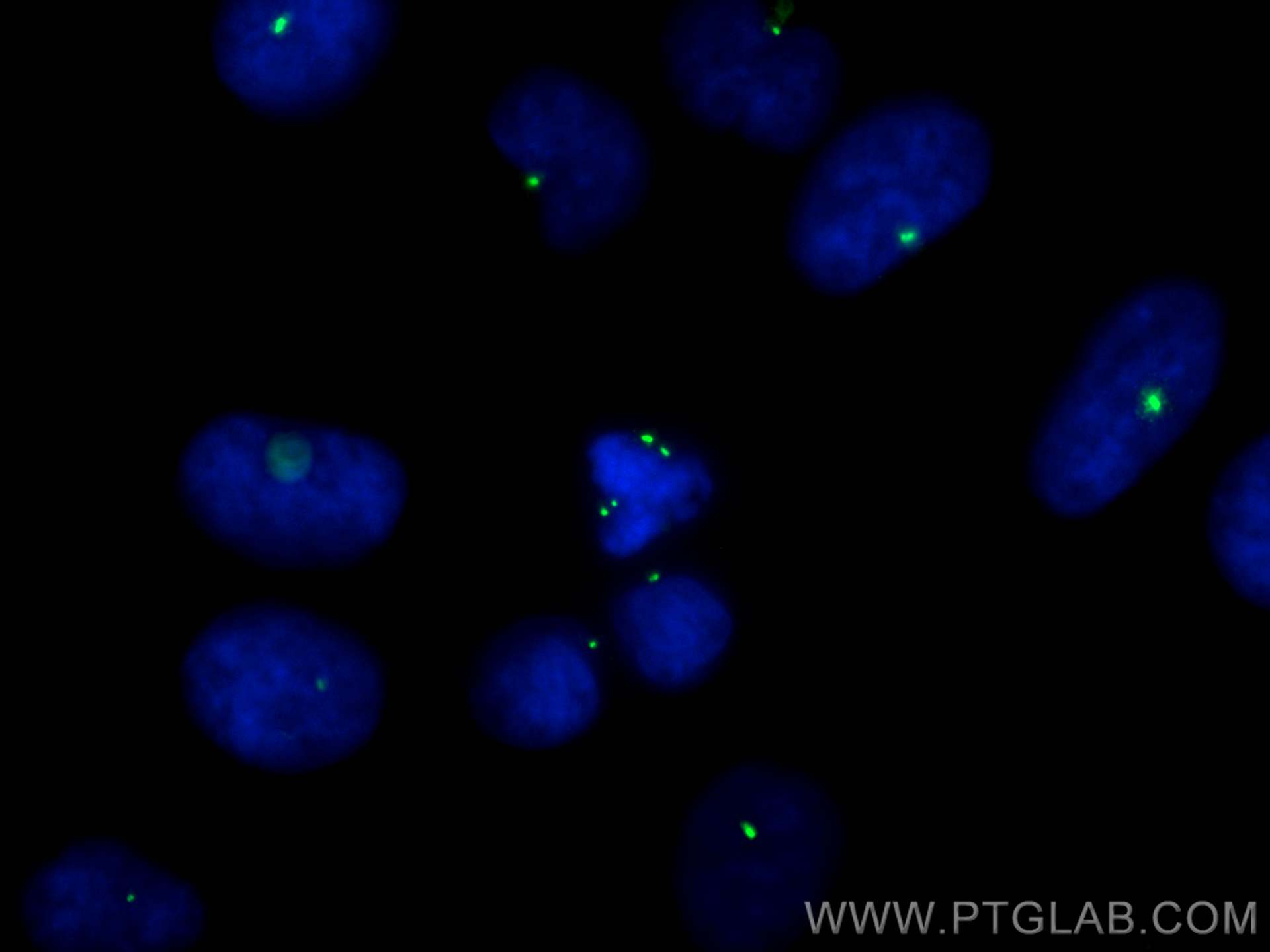验证数据展示
经过测试的应用
| Positive IF/ICC detected in | HeLa cells |
推荐稀释比
| 应用 | 推荐稀释比 |
|---|---|
| Immunofluorescence (IF)/ICC | IF/ICC : 1:50-1:500 |
| It is recommended that this reagent should be titrated in each testing system to obtain optimal results. | |
| Sample-dependent, Check data in validation data gallery. | |
产品信息
CL488-27084 targets Pericentrin in IF/ICC applications and shows reactivity with human samples.
| 经测试应用 | IF/ICC Application Description |
| 经测试反应性 | human |
| 免疫原 | Pericentrin fusion protein Ag25888 种属同源性预测 |
| 宿主/亚型 | Rabbit / IgG |
| 抗体类别 | Polyclonal |
| 产品类型 | Antibody |
| 全称 | pericentrin |
| 别名 | KEN, Kendrin, KIAA0402, MOPD2, PCN, PCNT, PCNT2, PCNTB, PCTN2, pericentrin, Pericentrin B, SCKL4 |
| 计算分子量 | 378 kDa |
| GenBank蛋白编号 | AK093923 |
| 基因名称 | Pericentrin |
| Gene ID (NCBI) | 5116 |
| RRID | AB_3084106 |
| 偶联类型 | CoraLite® Plus 488 Fluorescent Dye |
| 最大激发/发射波长 | 493 nm / 522 nm |
| 形式 | Liquid |
| 纯化方式 | Antigen affinity purification |
| 储存缓冲液 | PBS with 50% glycerol, 0.05% Proclin300, 0.5% BSA , pH 7.3 |
| 储存条件 | Store at -20°C. Avoid exposure to light. Stable for one year after shipment. Aliquoting is unnecessary for -20oC storage. |
背景介绍
PCNT, also named as KIAA0402, PCNT2, Pericentrin-B and Kendrin, is an integral component of the filamentous matrix of the centrosome involved in the initial establishment of organized microtubule arrays in both mitosis and meiosis. PCNT plays a role, together with DISC1, in the microtubule network formation. PCNT is a marker of centrosome. Defects in PCNT are the cause of microcephalic osteodysplastic primordial dwarfism type 2 (MOPD2).
实验方案
| Product Specific Protocols | |
|---|---|
| IF protocol for CL Plus 488 Pericentrin antibody CL488-27084 | Download protocol |
| Standard Protocols | |
|---|---|
| Click here to view our Standard Protocols |
